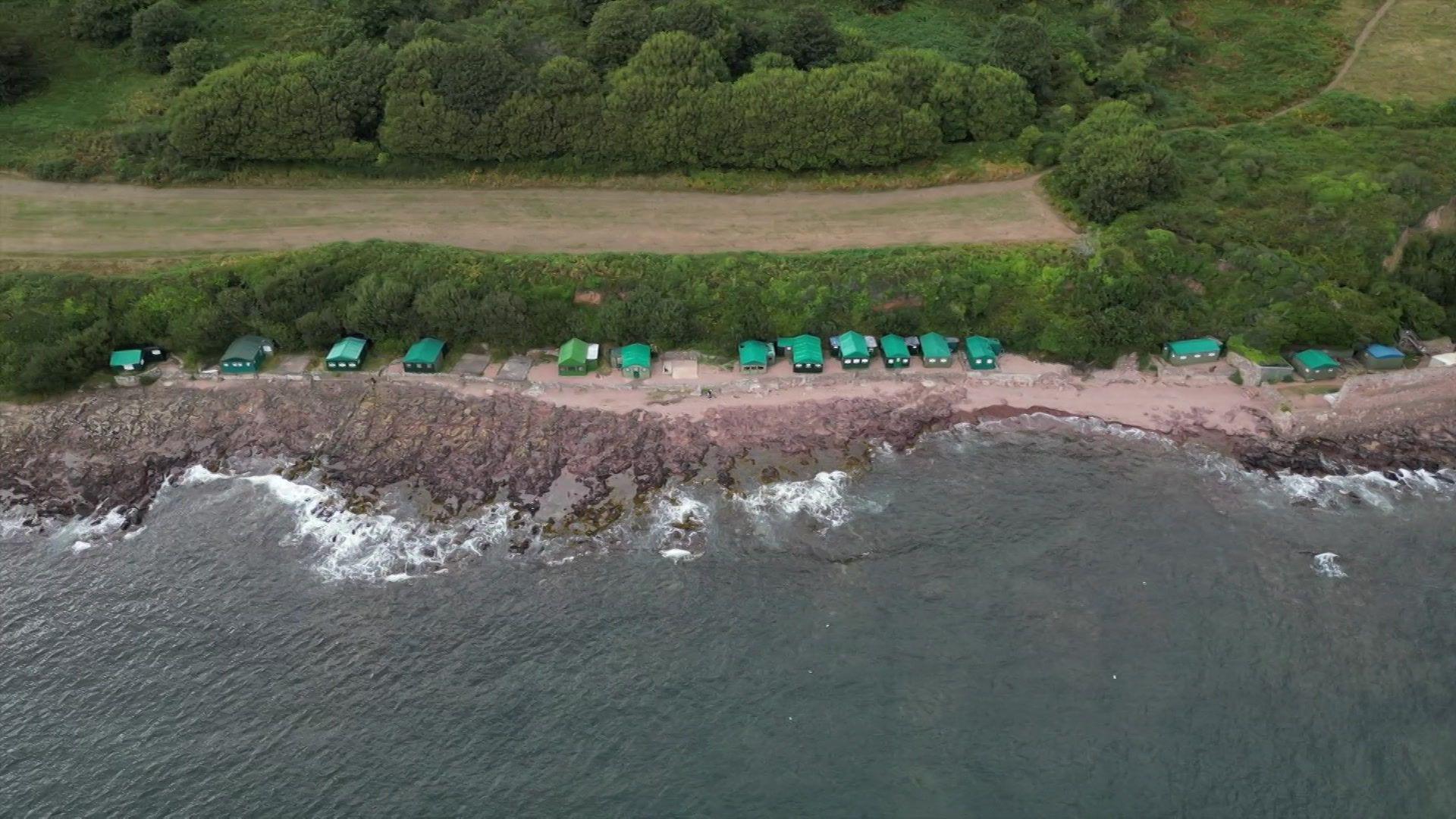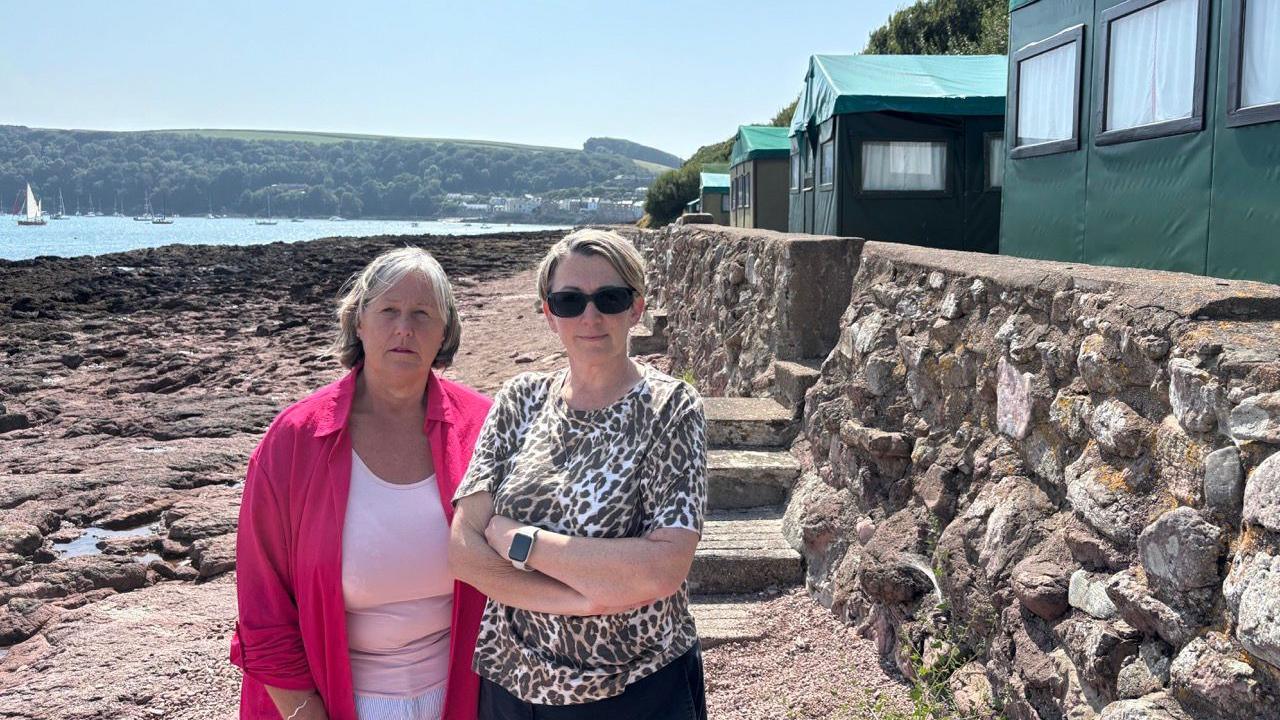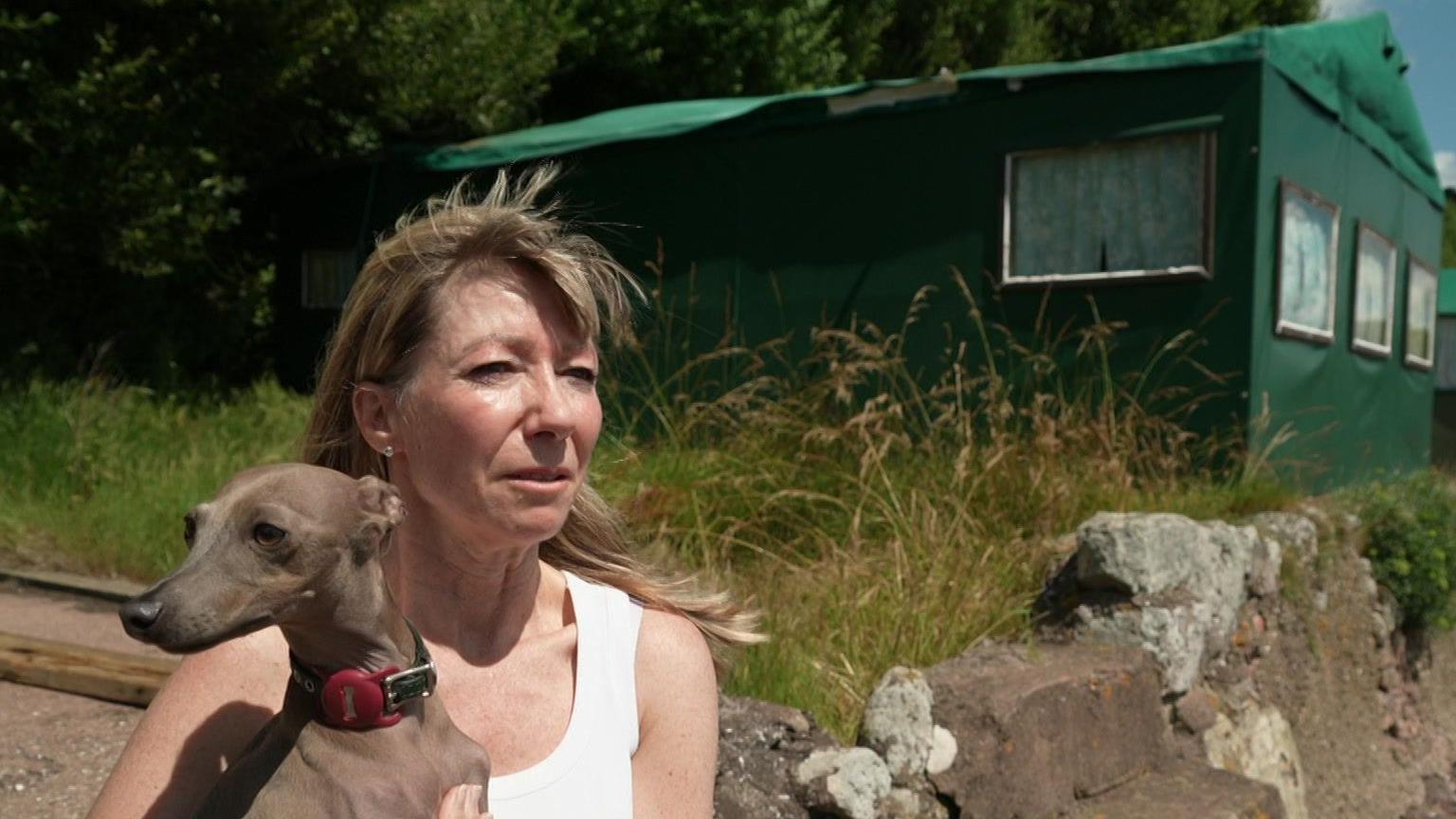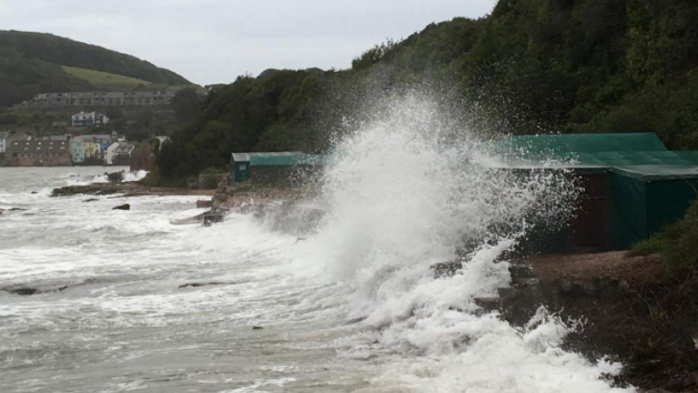Beach campsite closure 'will ruin our lives'

Sandways beach is jointly owned by Plymouth City Council and Cornwall Council
- Published
A decision by two councils to stop a 100-year-old beach campsite "will ruin our lives", a hut owner has said.
Sandway beach on the Rame peninsula, in Cornwall, has experienced several landslides and rockfalls in recent years.
The beach, jointly owned by Plymouth City Council and Cornwall Council, was leased to the Sandway Campers Association for 15 years, but, due to the safety risks, it was not renewed after it expired in 2024.
Eviction notices were placed on the tented chalets earlier this year due to the safety concerns and the councils said they would remove the cabins as soon as possible.

Hut owner Becky Lingard, left, said she grew up near the campsite
Members of the association, who maintain the chalets, said they were prepared to put any mitigations in place that would ensure the long-held tradition continued.
Becky Lingard, from Kingsand, and owner of one of the huts, said "We started asking about the lease renewal.
"They turned around and said it wouldn't be renewed because of risk of the bank [behind the cabins] falling.
"The councils did an inspection after that and put mitigations in place and Sandway did everything and more we were asked to do."
Campsite users said they were willing to put more mitigations in place, the Local Democracy Reporting Service said.
"The councils could even say we can only use it during the day," said Mrs Lingard.
"This has 100% ruined our lives," she added.
The association members have commissioned their own independent geo-technical survey, the results of which are due soon.
Councillor Kate Ewert, who represents the Rame Peninsula at Cornwall Council, said: "We really feel that it's been over-exaggerated.
"Everyone who has these chalets, everyone who lives here, we understand the risks of the sea and coastal erosion."
Previously, Loic Rich, Cornwall Council cabinet member for environment and climate change, said "We understand that it's a really special place for visitors and locals alike, but safety has to be our number one priority."
A Cornwall Council spokesperson said the local authorities agreed to help the association look for an alternative site but there was no certainty one would be found.
It said: "If an appropriate site is identified, planning permission will be required, infrastructure will need to be installed and a lease will have to be agreed with the landowner.
Follow BBC Cornwall on X, external, Facebook, external and Instagram, external. Send your story ideas to spotlight@bbc.co.uk, external.
- Published4 July

